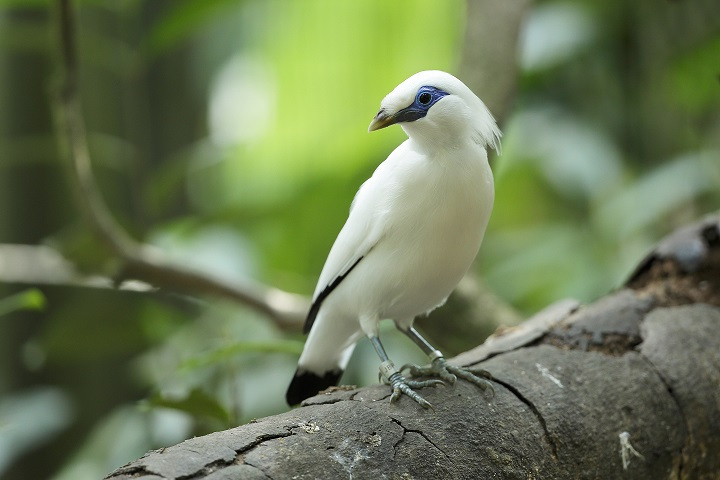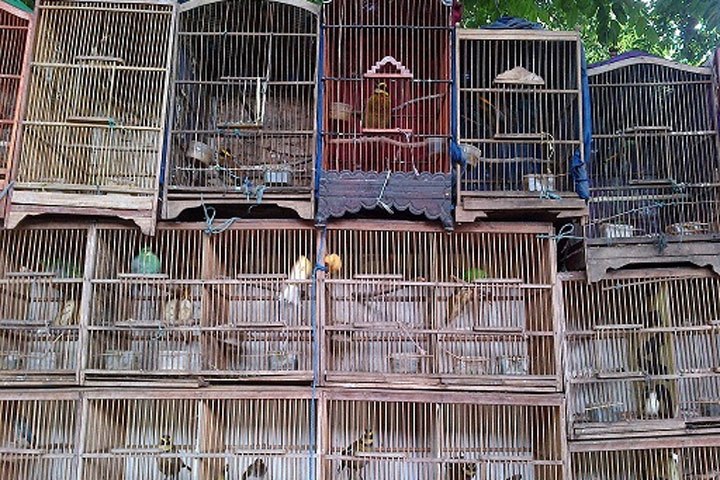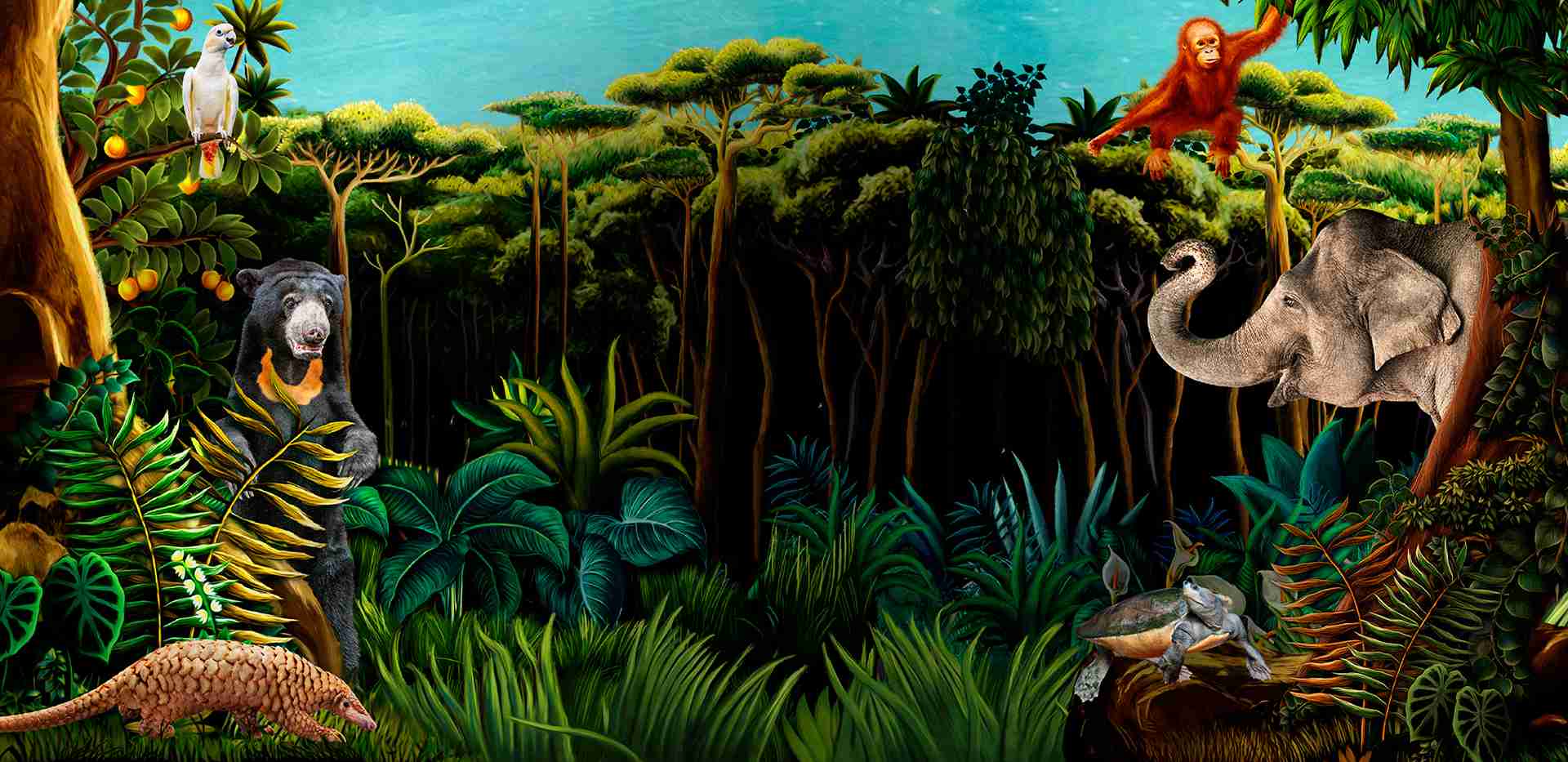Asian songbird trade crisis specialist group formed to tackle conservation threats
Singapore, 25 September 2017 – Threatened songbirds in the region will now have the voice of the first Asian Songbird Trade Specialist Group to join the chorus against the illegal and unsustainable cage bird trade.
Formally recognised by the International Union for Conservation of Nature’s Species Survival Commission (IUCN SSC) in May 2017, the Asian Songbird Trade Specialist Group (ASTSG) is dedicated solely to preventing the imminent extinction of songbirds threatened by unsustainable trapping and the trade. This is the first multidisciplinary specialist group, and prior to its formation, there was no official conservation body under the IUCN SSC focusing on songbirds and the threats arising from its illegal trade.
 Photo credit: TRAFFIC & Wildlife Reserves Singapore
Photo credit: TRAFFIC & Wildlife Reserves Singapore

Image (right): Songbirds on sale at a market in Jakarta, Indonesia.
Together with other global experts, Wildlife Reserves Singapore played a key role in driving the formation of the ASTSG – a natural progression from the Songbird Crisis Summits in 2015 and 2017— also hosted by Wildlife Reserves Singapore—and will implement the conservation strategy and action plans discussed at these important meetings. This is also the first time an institution in Singapore is hosting a specialist group under the IUCN SSC.
Southeast Asia is home to more than 850 bird species. Keeping songbirds is seen as a social status symbol, with demand also arising from cultural practices—such as religious releases and songbird competitions. As a result, the region sees huge demand for domestic and international bird trade, involving countless individuals of hundreds of species. Many of these are now facing catastrophic declines.
David Jeggo, Chair of the ASTSG said: “The songbird trade conservation issue is highly complex, with many different perspectives and challenges. A coordinated effort under this Specialist Group would create synergies by bringing together a range of subject matter experts to find solutions to reverse the growing threat to songbird species and improve the conservation status of all the species involved.”
Currently, conservation efforts are broadly centred around in situ research into wild populations; genetic research; trade monitoring and legal protection; ex situ conservation breeding programmes; and education and community engagement. These five themes form sub-groups are led by vice-chairs in the ASTSG.
Vice-chair (Trade and Legislation) – Christopher Shepherd, Wildlife Trade Expert, Canada
Vice-chair (Field Research) – Stuart Marsden (Manchester Metropolitan University, U.K.)
Vice-chair (Genetics) – Frank Rheindt (National University of Singapore, Singapore)
Vice-chairs (Ex-situ Breeding and Reintroductions) – Luis Neves (Wildlife Reserves Singapore, Singapore) & Andrew Owen (Chester Zoo, U.K.)
Vice-chair (Education and Community Engagement) – Ria Saryanthi (Burung Indonesia, Indonesia)
Wildlife Reserves Singapore also contributes in other capacities towards songbird conservation, including education and community outreach activities, as well as through the conservation breeding of various threatened species of songbirds at Jurong Bird Park. Wildlife Reserves Singapore also supports two songbird conservation projects in Bali and Java, Indonesia, where the critically endangered songbirds are bred and reintroduced into the wild.
This press release coincides with the timely launch of European Association of Zoos and Aquaria’s two-year ‘Silent Forest’ campaign, aimed to support and raise awareness of conservation efforts of Southeast Asian songbirds threatened by trade, and by extension the ASTSG’s objectives.

